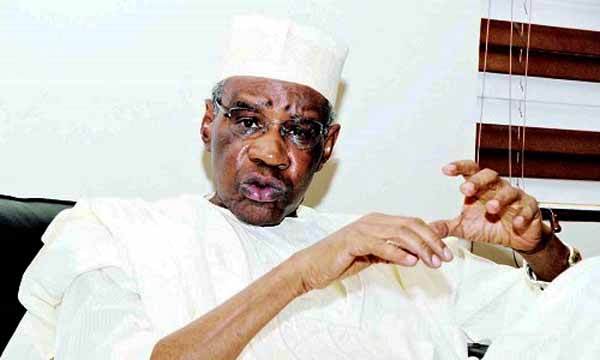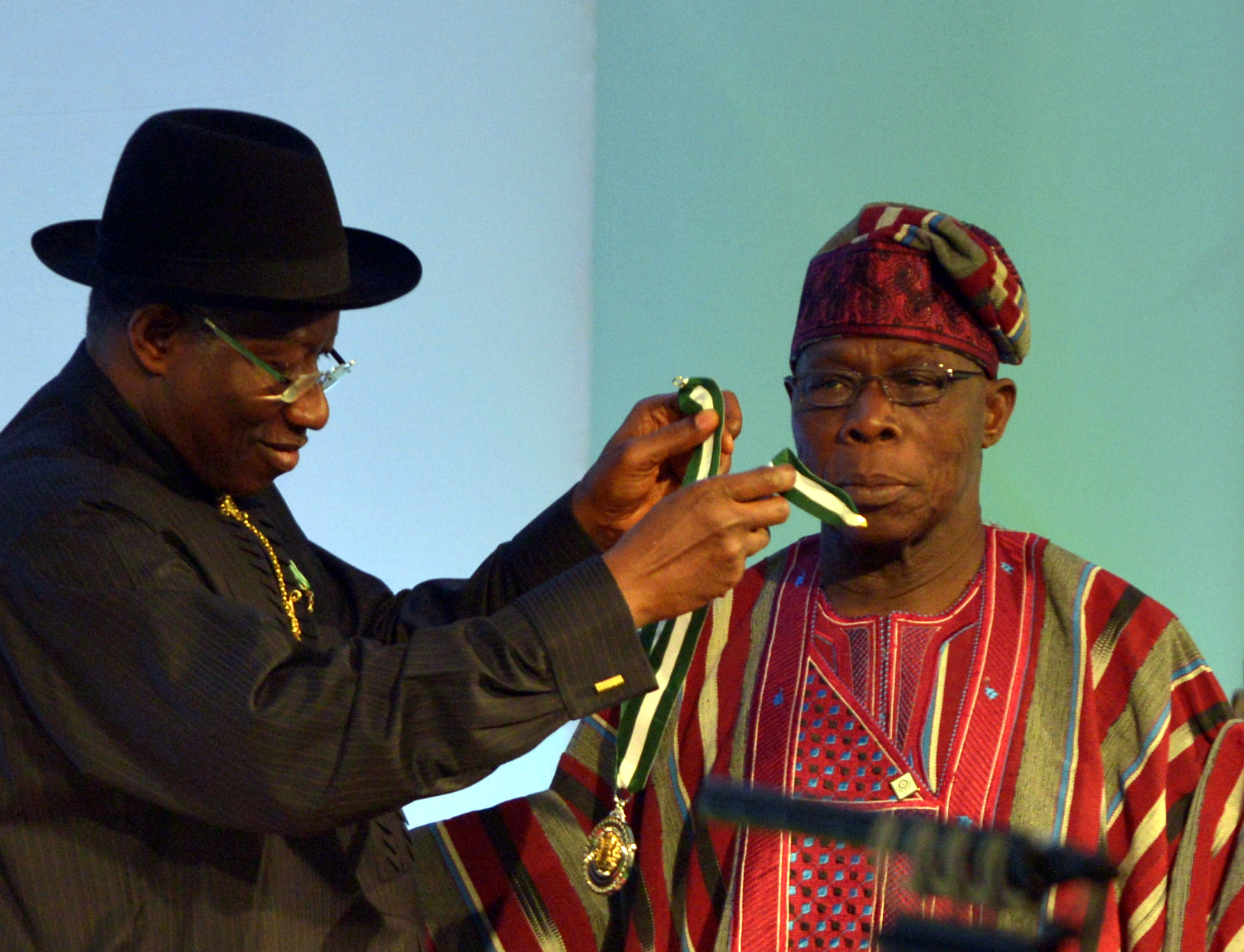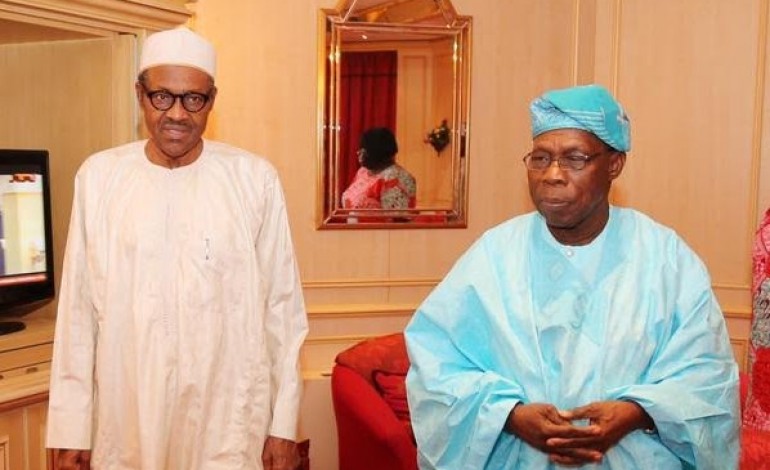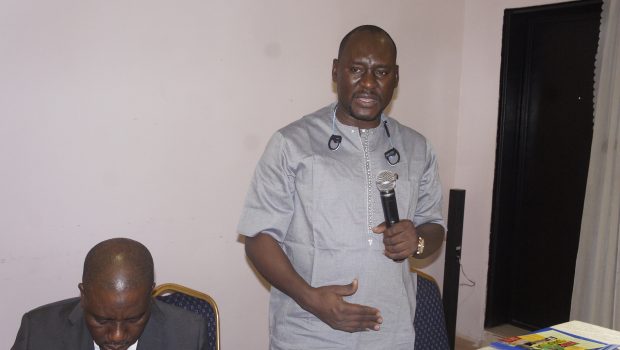If you can’t paste, don’t copy.
When President Goodluck Jonathan said “stealing is not corruption” in one of his presidential media chats on national TV, he broke that rule. The famous statement would later play an important role in the campaign against him in 2015, and his failure to get re-elected is partly blamed on his perceived comfort with corruption.
But Jonathan, defending himself, said he was misunderstood.
In 2012, when Dahiru Musdapher was chief justice of Nigeria (CJN), Jonathan called a meeting of stakeholders to express his worry about the delay in the trial of corruption cases in court.
Advertisement
He was also worried about the indiscriminate granting of injunctions, interim orders and ex-parte motions by the courts, especially in Anambra and Lagos states, on corruption cases.
The meeting, which was held at the at the council chambers, presidential villa, had in attendance one chief judge from each six geo-political zone, David Mark, then senate president, Aminu Tambuwal, then speaker of the house of representatives, Ekpo Nta, then chairman of the ICPC, and Ibrahim Lamorde, then chairman of the Economic and Financial Crimes Commission (EFCC).
During the meeting, Musdapher, TheCable learnt, said the issue of corruption had been “bastardised”. According to him, cases of “common theft” or stealing, which should ordinarily be handled by the police and tried by magistrate courts, were being handled by the EFCC.
Advertisement
He said the EFCC should focus on cases of high-profile corruption, particularly economic crimes, instead of doing the job of the police of petty stealing, thereby over-working itself.
In repeating the statement, Jonathan misquoted Musdapher, and said “even the chief justice said stealing is not corruption”.
He later tried to clarify the statement, but it was too late. The damage had been done.
If you can’t paste, don’t copy!
Advertisement
“People who told you I said stealing is not corruption did not tell you I said stealing is good. That is why philosophers say that the primary reason people disagree is because people use one statement to explain two typical things or vice versa,”Jonathan said while trying to defend his statement.
“I made that statement because I quoted the former Chief Justice of Nigeria, Mustapha, (when) I called a meeting then, with the anti-crime organisations and the judiciary.
“The CJN, Mustapha decided to take a look at the files that dealt with corruption and more than 80 per cent of them were just cases of stealing. But people use corruption to cover all.
“So, let us communicate properly. It was not me that said it, I quoted Musdapher. He examined the corruption cases and he saw that they were just cases of stealing.”
Advertisement
SOUGHT REINSTATEMENT OF AYO SALAMI
Ayo Salami, ex-president of the appeal court, was in 2011 suspended following his claim of an attempt by Aloysius Katsina-Alu, then CJN, to influence the decision of the court, in a Sokoto governorship election matter.
Based on the recommendations from a panel which investigated petitions against Salami and Katsina-Alu, Salami was found guilty.
Advertisement
The panel’s recommendation was received by the NJC on August 9, 2011.
Salami then approached the federal high court to challenge the recommendations of the panel.
Advertisement
While that matter was pending in court, the NJC held an emergency meeting with most of its principal members absent and suspended Salami under suspicious circumstances. They also recommended his retirement to Jonathan.
Salami’s name was forwarded to the senate for the confirmation of his retirement, as required by law. However, in April 2012, the NJC, headed by Musdapher, recommended the reinstatement of Salami.
Advertisement
Musdapher’s recommendation was, however, not implemented because it was considered “functus officio” — that is, the matter was no longer in the hands of NJC, so it could not reverse itself.
Until his compulsory retirement in 2013, Salami was never reinstated.
CALLED FOR ‘STATE OF EMERGENCY’ IN JUDICIARY
Even after his retirement, Musdapher did not fail to lend his voice to issues that concerned the country. In January 2017, he asked the federal government to declare a state of emergency on the Nigerian judiciary.
He decried the slow dispensation of justice in the country while expressing regrets that some judges intentionally disobeyed court rules by not sitting at the statutory time, thereby contributing to the slow pace of justice.
“We must declare a national emergency to root-out and punish erring judges no matter where they are found,” Musdapher said.
Musdapher advocated the need to establish an independent agency that would be responsible for judicial discipline and enforcement of the code of conduct for judicial officers.
“I have previously advocated the need to establish an independent agency responsible for judicial discipline, removal and enforcement of the Code of Conduct for judicial officers.
“I strongly believe that self-regulation via the National Judicial Council has not been effective in overturning the rising tide of judicial malfeasance.”
‘NEVER LEARNT TO DRIVE’
According to a note on his Wikipedia page, Musdapher did not learn how to drive, even though he had his first car over 50 years ago.
He is also said to be a fast reader with speedy assimilation.
“My lord never bothered to learn how to drive a motor car. Even though he got his first car since the late 1960s, he always has a driver at hand,” the note reads.
“A very quick reader. He can read vast amounts of text very quickly with unbelievable understanding.”
Musdapher, a variant of the name “Mustapha”, served as the attorney-general and commissioner for justice, Kaduna state, 1976–1978, judge high court of Kano state, 1979, chief judge, Kano state judiciary, 1979–1985, justice, court of appeal, 1985–2003 and justice, and chief justice of Nigeria from 2011-2012.
He was married to Fatimah Musdapher (née Suleiman Galadima) with three children, Khadijah, Kaloma and Suleiman. He had nine grandchildren.
He bade goodbye to life on Tuesday, aged 75.
He was born on July 15, 1942, to the family of Musdapher Musa, a renowned Islamic scholar, in Jigawa state.
He attended Ahmadu Bello University, Zaria, Kaduna, from 1963-1964 where he bagged a degree in law and was called to the Nigerian bar in 1978.
Add a comment







